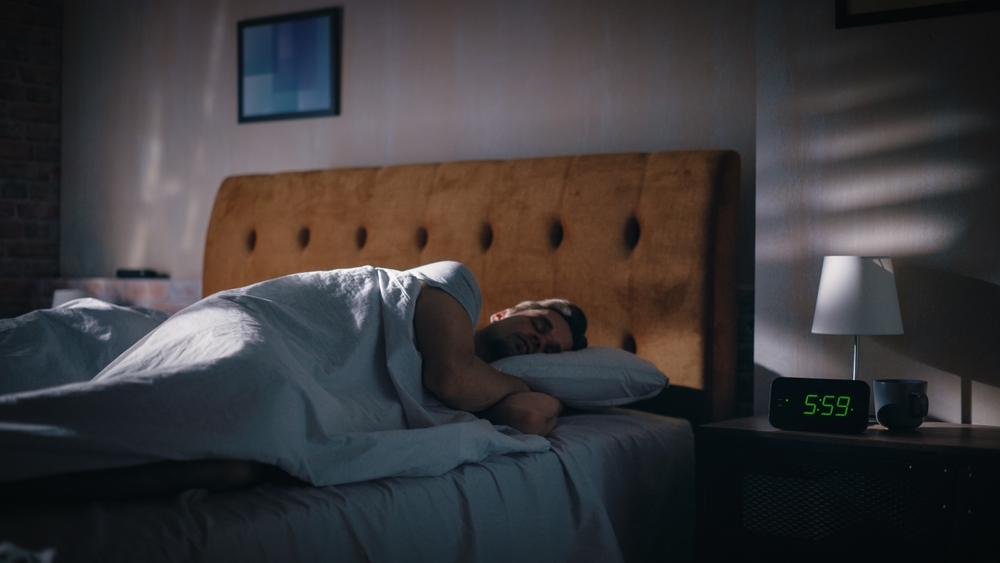
The Role of Sermorelin in Improving Sleep Quality and Recovery
Sleep quality and recovery are essential to maintaining health, supporting physical activity, and enhancing cognitive function. However, many people find it difficult to achieve restful sleep or to recover quickly after strenuous activities or stress.
Sermorelin, a synthetic analog of growth hormone-releasing hormone (GHRH), has shown potential in improving these areas by stimulating the body’s natural production of growth hormone (GH). By activating the pituitary gland, sermorelin prompts human growth hormone release, which plays an instrumental role in cellular repair, muscle growth, immune support, and cognitive health—functions closely linked with quality sleep and effective recovery.
This article explores sermorelin’s mechanism, its impact on sleep and recovery, and why it’s increasingly viewed as a promising therapy option. We’ll discuss how sermorelin differs from other GH treatments, examine lifestyle considerations for maximizing its benefits, and assess the broader implications for wellness.

What Is Sermorelin? – Mechanism of Action
Sermorelin acetate is a peptide composed of 29 amino acids that mimic the action of naturally occurring GHRH.
By binding to specific receptors in the pituitary gland, sermorelin encourages the release of growth hormone in a way that aligns with the body’s natural rhythms. The goal of sermorelin therapy is not to artificially replace GH but to stimulate the body’s production, reducing the risks associated with synthetic GH injections.
Growth Hormone’s Role in the Body
Human growth hormone is critical in numerous physiological processes.
- Muscle and Tissue Repair: GH aids in the repair and growth of muscle tissue, which is crucial for physical recovery.
- Metabolism and Body Fat Loss: GH supports lipolysis (fat breakdown), helping maintain a lean body composition.
- Cognitive Health and Neuroprotection: GH contributes to neuroplasticity and neurogenesis, essential for memory and learning.
- Immune Function: GH plays a role in immune cell production, helping the body combat infections and inflammation.
Why Sermorelin Offers a Natural Alternative to GH Injections
While direct administration of GH through injectables can effectively increase hormone levels, it often bypasses the body’s regulatory mechanisms, leading to imbalances, dependency, and potential side effects.
Sermorelin, in contrast, works within the body’s hormonal feedback loops, allowing GH production to adjust naturally. This reduces the risk of the common side effects associated with synthetic GH treatments.
The Science of Sleep and Recovery: The Role of Growth Hormone
Sleep is more than just a nightly recharge; it’s a crucial time for the body to restore and repair itself. One of the most significant components of this recovery process is the production of growth hormone (GH).
Released majorly during deep sleep, growth hormone plays a central role in muscle repair, tissue growth, and the overall recovery of the body. Understanding how GH functions during sleep can help individuals optimize their rest and, in turn, improve physical performance, mental health, and general well-being.
The Sleep Cycle and Hormone Release
Sleep consists of multiple stages: light sleep, deep or slow-wave sleep (SWS), and REM (Rapid Eye Movement) sleep.
The third stage, deep sleep, is the most restorative part of the cycle and is when GH release peaks. During slow-wave sleep, growth hormone is released, helping repair tissues, support immune function, and regulate metabolism. Inadequate deep sleep can disrupt growth hormone levels, slowing down recovery, immune function, and cognitive health.
How Sermorelin Supports Sleep Patterns
Studies suggest that sermorelin may improve the amount of time spent in the second-wave sleep cycle, leading to more restorative sleep.
Studies have shown that stimulating GH release through analogs like sermorelin could improve sleep efficiency by increasing second-wave sleep and minimizing wakefulness. For individuals suffering from insomnia or light sleep, sermorelin’s effect on sleep architecture can be transformative, promoting longer and more consistent cycles of restorative deep sleep.
Sermorelin and Mental Recovery: Cognitive Benefits and Emotional Well-being
Sermorelin may contribute to improved cognitive performance and emotional stability. Let’s look at some of its benefits on mental health.
Neuroplasticity and Cognitive Function
Growth hormone-releasing hormone play a significant role in neuroplasticity, which is the brain’s ability to adapt by forming new connections.
A study reported that GH encourages neurogenesis (the formation of new neurons), particularly in the hippocampus, the brain region responsible for memory and learning. Sermorelin’s impact on GH levels may thus help individuals improve memory, focus, and learning ability, which is especially useful for older adults or those with cognitive decline.
Growth Hormone’s Role in Stress Regulation and Sleep Stability
Chronic stress disrupts the natural GH release cycle, often leading to fragmented sleep and difficulty in reaching deep sleep stages.
GH helps regulate cortisol, the stress hormone, which can interfere with sleep patterns if left unchecked. By restoring GH levels, sermorelin can support cortisol balance, leading to more stable sleep patterns and reduced nighttime awakenings. A study showed that optimizing GH levels can significantly improve resilience to stress and enhance sleep consistency in individuals with high-stress lifestyles.
Sermorelin’s Impact on Immune Health and Inflammation
By boosting growth hormone levels, Sermorelin may help improve immune function, enhance recovery from illness, and reduce chronic inflammation, which is often linked to various health conditions.
The Immune-Modulating Effects of GH
Growth hormones influence immune health by supporting cytokine function, a protein that helps coordinate immune response.
GH also stimulates the production of white blood cells, which are essential for fighting off infections and reducing inflammation. By promoting a balanced immune system, sermorelin may contribute to a reduction in illness-related sleep disruptions and create a more resilient body capable of faster recovery.
Anti-inflammatory Properties of Growth Hormone
Inflammation, especially chronic inflammation, can contribute to sleep disturbances, joint pain, and even metabolic syndrome.
Growth hormone has anti-inflammatory effects, which can support joint health, improve sleep quality, and reduce pain associated with chronic inflammatory conditions. For individuals with autoimmune disorders, sermorelin therapy offers potential benefits by reducing systemic inflammation and promoting a balanced immune response, which can, in turn, improve sleep and recovery.

Benefits of Sermorelin for Sleep Quality and Recovery
Sermorelin therapy offers several advantages, particularly for individuals seeking improvements in sleep quality, physical recovery, and overall well-being.
By naturally stimulating the body’s own growth hormone (GH) production, Sermorelin provides a variety of benefits that support both physical and mental health.
- Natural Growth Hormone Stimulation: Unlike synthetic GH injections, Sermorelin stimulates the body’s own production of GH. This helps maintain natural feedback mechanisms, reducing the risk of hormonal imbalances and minimizing dependency.
- Enhanced Sleep Quality and Efficiency: Sermorelin can improve sleep architecture by increasing time spent in slow-wave sleep (SWS), which is crucial for physical and cognitive recovery. This promotes memory consolidation, cellular repair, and improved energy levels.
- Improved Muscle Repair and Physical Recovery: Growth hormone supports protein synthesis and collagen formation, which is essential for muscle mass repair and joint health. Sermorelin can reduce recovery time, enhance endurance, and improve overall physical performance, especially for athletes or those recovering from physical exertion.
- Enhanced Cognitive Function and Emotional Stability: Sermorelin has the potential to alleviate cognitive impairments like brain fog and mood instability, often associated with poor sleep or GH deficiencies. It supports neuroplasticity and neurogenesis – critical for memory, focus, and emotional balance.
- Metabolic and Body Composition Improvements: Sermorelin may help reduce body fat and increase lean muscle mass by improving body fat metabolism and insulin sensitivity. This supports a healthier metabolic profile, contributing to better weight management and stable energy levels.
- Potential Anti-Aging Effects: Sermorelin could mitigate age-related declines in muscle mass, bone density, skin elasticity, and cognitive function by supporting growth hormone levels. It may promote a youthful appearance and improve physical resilience, particularly for individuals experiencing natural GH reductions due to aging.
Risks and Considerations of Sermorelin Therapy
While Sermorelin offers significant benefits, it is important to consider the potential risks and side effects. Users should be aware of the following concerns and take steps to mitigate any issues that may arise.
- Mild Side Effects at Injection Site: Some individuals may experience mild irritation, such as redness, swelling, or pain at the injection site. These effects are usually minor but can be uncomfortable for some users.
- Mitigation: Use proper injection techniques and alternate injection sites to minimize these symptoms.
- Mitigation: Use proper injection techniques and alternate injection sites to minimize these symptoms.
- Potential Headache, Dizziness, or Nausea: As the body adjusts to Sermorelin, some users may experience temporary symptoms like headaches, dizziness, or nausea. These side effects are typically mild and subside over time.
- Mitigation: Gradually increasing the dose can help the body adjust and reduce these side effects.
- Mitigation: Gradually increasing the dose can help the body adjust and reduce these side effects.
- Hormonal Imbalance Risks with Overuse: Excessive or unregulated use of Sermorelin can disrupt hormonal balance, potentially leading to joint pain, insulin resistance, or elevated blood pressure.
- Mitigation: Regular medical monitoring, including blood tests to track IGF-1 and other hormone levels, is essential to prevent imbalances.
- Mitigation: Regular medical monitoring, including blood tests to track IGF-1 and other hormone levels, is essential to prevent imbalances.
- Risk of Exacerbating Certain Health Conditions: Individuals with hormone-sensitive cancers or heart conditions should approach Sermorelin with caution, as growth hormone could potentially influence these conditions.
- Mitigation: Consult a healthcare provider to evaluate individual risks before starting Sermorelin therapy.
- Mitigation: Consult a healthcare provider to evaluate individual risks before starting Sermorelin therapy.
- Cost and Accessibility: Sermorelin therapy can be expensive, particularly since it requires consistent, long-term use to maintain GH levels and see benefits. Accessibility may also be an issue as it is only available by prescription.
- Mitigation: Discuss treatment goals and costs with a healthcare provider to assess whether Sermorelin therapy is a worthwhile investment.
- Mitigation: Discuss treatment goals and costs with a healthcare provider to assess whether Sermorelin therapy is a worthwhile investment.
- Dependency and Long-Term Efficacy Concerns: Although less likely than synthetic GH injections, some individuals may become reliant on Sermorelin for maintaining sleep quality and recovery. Stopping abruptly may lead to a decline in sleep quality and energy.
- Mitigation: Regular assessments with healthcare professionals can help manage long-term use and ensure balanced, sustainable results.
Long-Term Implications of Sermorelin on Health, Sleep, and Aging
Sermorelin therapy, through its role in stimulating natural growth hormone production, has potential long-term effects on overall health, sleep, and aging.
It may contribute to improvements in sleep quality, energy levels, and physical recovery. Over time, Sermorelin could play a role in supporting age-related changes, but its long-term use should be monitored to maintain balance and avoid potential risks.
Anti-Aging Benefits
Growth hormone plays a significant role in aging, affecting everything from skin elasticity to muscle mass and bone density.
Sermorelin, by supporting the body’s natural GH production, offers promising anti-aging results. While it’s not a cure for aging, sermorelin’s impact on GH levels could help individuals maintain more youthful physiological functions, leading to improved physical and cognitive resilience.
Sermorelin and Quality of Life
Improved sleep and recovery, reduced inflammation, and balanced metabolism all contribute to an enhanced quality of life.
Individuals who maintain healthy GH levels through sermorelin therapy often report increased energy, better focus, and improved mood—all of which contribute to a sense of well-being. For those struggling with sleep disorders, chronic fatigue, or slower recovery, sermorelin may offer a path to greater vitality and wellness.
Conclusion: Considering Sermorelin for Better Sleep and Recovery
Sermorelin provides a unique, natural way to address growth hormone deficiencies, supporting improved sleep quality, efficient recovery, and balanced overall health.
For individuals facing poor sleep quality, reduced recovery rates, or the effects of aging, sermorelin therapy can be a safe and effective solution when managed with medical guidance. By naturally stimulating the pituitary gland to release GH, sermorelin enhances the body’s regenerative processes without the risks associated with synthetic GH injections.
With more research and thoughtful application, sermorelin may become an increasingly accessible and valuable option for sleep and recovery enhancement. Whether you’re an athlete, a high performer, or simply looking to feel your best as you age, sermorelin’s potential to support growth hormone offers a compelling addition to your health toolkit.